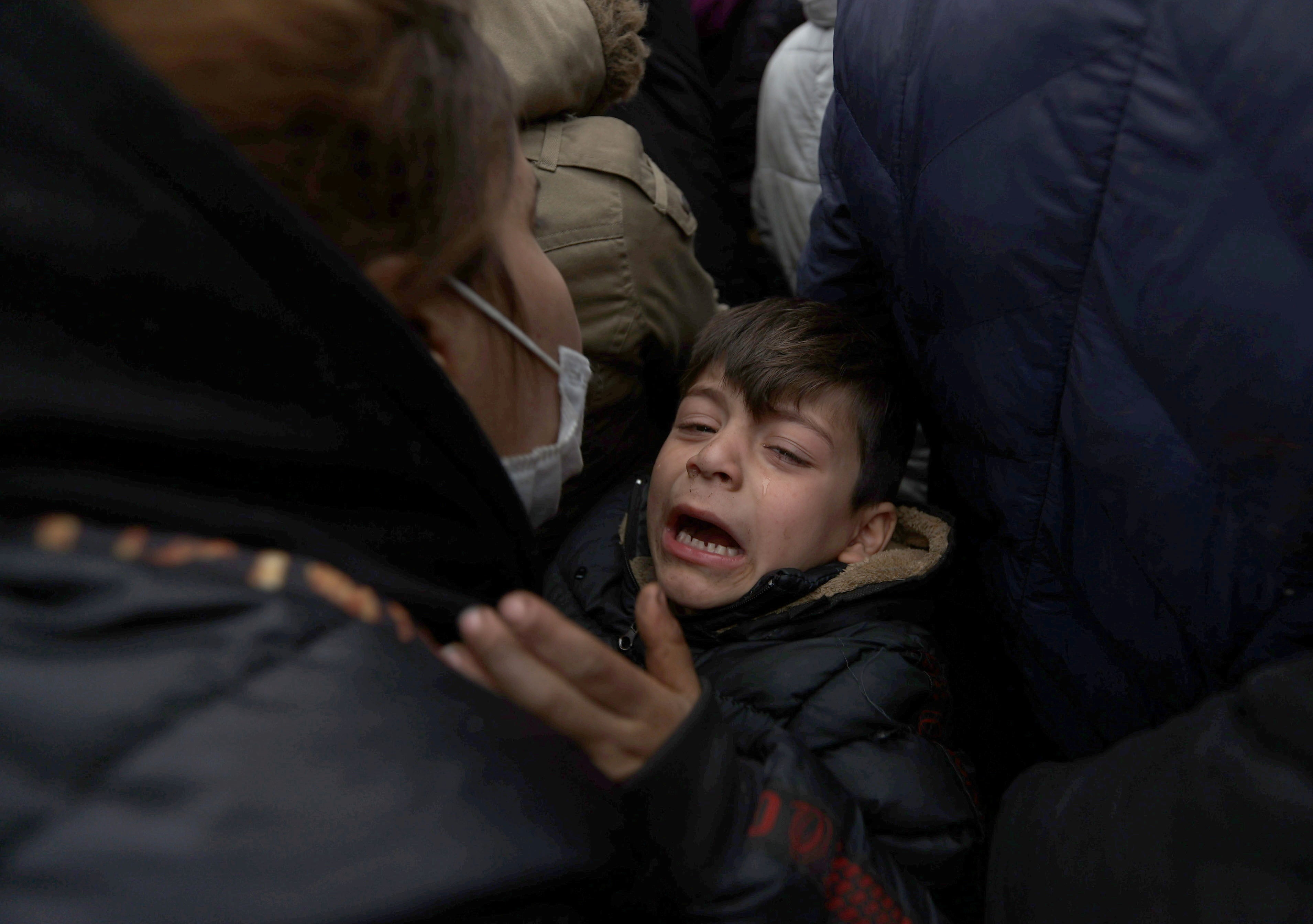Belarus threatens to disrupt European gas supplies over spiralling migrant crisis
The Belarus leader warns his country was ‘heating Europe’, as EU threatens further sanctions and Ukraine deploys thousands of troops on its border

Your support helps us to tell the story
From reproductive rights to climate change to Big Tech, The Independent is on the ground when the story is developing. Whether it's investigating the financials of Elon Musk's pro-Trump PAC or producing our latest documentary, 'The A Word', which shines a light on the American women fighting for reproductive rights, we know how important it is to parse out the facts from the messaging.
At such a critical moment in US history, we need reporters on the ground. Your donation allows us to keep sending journalists to speak to both sides of the story.
The Independent is trusted by Americans across the entire political spectrum. And unlike many other quality news outlets, we choose not to lock Americans out of our reporting and analysis with paywalls. We believe quality journalism should be available to everyone, paid for by those who can afford it.
Your support makes all the difference.Belarusian president Alexander Lukashenko has threatened to retaliate against any new European Union sanctions by shutting down the transit of natural gas via Belarus, as the migrant crisis on its border deepened on Thursday.
“We are heating Europe, they are still threatening us that they will close the border. And if we shut off natural gas there? Therefore, I would recommend that the Polish leadership, Lithuanians and other headless people think before speaking,” Mr Lukashenko said.
His threat came as thousands of people prepared to endure another freezing night on the border between Belarus and Poland and several countries in the region issued a joint warning the crisis could slip into military conflict.
Ukraine said it would deploy 8,500 more troops and police to reinforce its border with southern Belarus, while Lithuania, Estonia and Latvia said Lukashenko’s regime posed serious threats to European security by deliberately escalating its “hybrid attack” of weaponising the migrant crisis.
“This increases the possibility of provocations and serious incidents that could also spill over into the military domain,” a joint statement by the countries’ defence ministers said. Poland has already warned the same.
Belarus said that the build-up of troop numbers elsewhere meant it would be obliged it to take “appropriate response measures”, both independently and together with its strategic ally, Russia. Twenty-four hours earlier, Moscow sent bombers to deploy Belarus airspace.
Meanwhile, the European Union reinforced its commitment to put fresh sanctions in place by early next week and could impose new sanctions on Belarus and airlines ferrying the migrants to the region.
The EU has accused Belarus of encouraging illegal immigration in revenge for previous sanctions on Minsk over human rights abuses.
The Kremlin said Russia had nothing to do with tensions on the border and suggested the presence of heavily armed people on both sides was a source of concern.

It also said President Vladimir Putin held a second phone call in two days with Chancellor Angela Merkel of Germany, telling her the EU should talk to Belarus about the crisis.
On the ground, migrants stranded inside Belarus threw rocks and branches at Polish border guards and used logs to try to break down a razor wire fence in new attempts to force their way into the EU, authorities in Warsaw said.
The gas threat from the Belarus leader was, however, dismissed by one leading member of the country’s exiled opposition.
“Alexander Lukashenko will not stop the pipeline, it’s another bluff. Let’s not forget Lukashenko wants Europe to speak to him,” Franak Viačorka told The Independent.
“If he did this it would hurt him, it would hurt Russia. Usually when he does something, like down a Ryanair flight, he doesn’t say so in advance.”
Russia supplies some of its gas to Poland and Germany via Belarus, through the Yamal-Europe pipeline. Tom Marzec-Manser, head of gas analytics at ICIS, said the market has not reacted to the recent comments from Mr Lukashenko.
“Gas supply from Russia to western Europe is around 290 million cubic metres. Around 30 million is coming via the Belarusian route [around 10 per cent],” Mr Marzec-Manser told The Independent.

“Gazprom owns the pipeline network within Belarus, Gazprom also supplies gas to Belarus through that network. It would be difficult for the Belarusian state to force this to happen given that Gazprom runs the pipeline and Belarus is dependent on Russian gas.
“I’ve looked at the prices within Europe and the market is not responding to this, the gas market is not taking these comments seriously.”
Mr Marzec-Manser added that although historically this pipeline was used significantly, in recent weeks usage has been so low that the flow is in reverse.



Join our commenting forum
Join thought-provoking conversations, follow other Independent readers and see their replies
Comments